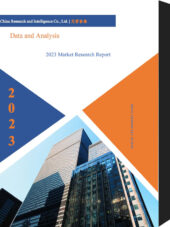Description
Global Self-driving Car Market
A self-driving car also known as the driverless car or an autonomous car or robotic car uses a combination of, cameras, radars sensor, GPS system and artificial intelligence (AI) to travel between destinations without the need of any human drivers. To quantify as self-driving cars must be able to drive to a predetermined destination without human conduction. It is expected that the self-driving car would reduce car crash by up to 90%. The global self-driving car market is expected to expand at a CAGR of 50.9%, leading to global revenue of USD 155.69 Bn by 2024.
Artificial technologies power self-driving cars system. The software developer and car-manufacturer use vast amount of data from the sensors, image recognition that are integrated with machine learning that helps to build the autonomous car. The advanced control system use information from GPS and sensory to map the navigation path. Car manufacturers are investing heavily in artificial intelligence to succeed in the era of self-driving cars.
The global self-driving car market segment is based on applications, automation, and technological components and geography. The global market for self-driving cars can be categorized on the basis of its applications (personal use and commercial use) based on automation (semi-autonomous and fully-autonomous) and based on technological components (radar, lidar, automotive vehicle camera, ultrasonic sensor and GPS navigation system). Geographically, the self-driving car market is segmented into North America, Europe, Asia-Pacific, Latin America and the Middle East and Africa.
Key growth factors
The increasing concern for road safety and the automotive technological advancement are some other drivers which are making this market grow. To sustain a safe and efficient transportation system, this is important.
When a car can drive itself back home or pick up another person, not many cars will be needed on the road. This will result in less traffic, more available parking space, a greener environment, etc.
Threats and key players
Even though the self-driving car market is forecasted to experience positive growth globally. Testing self-driver cars on roads is a big challenge as any fault or glitch in the software may be fatal.
Major self-driving car providers operating in the market are divided based on technology providers (Microsoft, Apple, IBM, and Cisco) and automobile industry players (Waymo, Toyota, General Motors, Tesla, Volvo, and Nissan)
What’s covered in the report?
1. Overview of the global self-driving car market
2. Market drivers and challenges in the global self-driving car market
3. Market trends in the global self-driving car market
4. Historical, current and forecasted market size data for the global self-driving car market
5. Historical, current and forecasted market size data for the applications of cars in global self-driving car market (personal use and commercial use)
6. Historical, current and forecasted market size data for the automation level in the global self-driving car market (semi-automation and fully-automation)
7. Historical, current and forecasted market size data for the technology components in the global self-driving car market (radar sensors, video cameras, lidar sensors, ultrasound sensors and GPS navigation systems)
8. Historical, current and forecasted regional (North America, Europe, Asia-Pacific, Latin America, the Middle East & Africa) market size data for the global self-driving car market
9. Analysis of the competitive landscape and profiles of major companies operating in the market
10. Key recent developments in the global self-driving car market
Why buy?
1. To gain insightful analysis of the entire market and have a comprehensive understanding of the global self-driving car market
2. To understand the growth drivers and challenges in the self-driving cars market and its impact on the global scenario
3. To analyze the market potential, drivers, latest market trends, opportunities and challenges, self-driving cars market threats and risks
4. Identify major competitors, market dynamics and respond accordingly
5. Devise market-entry strategies by understanding the factors driving the growth of the market
6. Get stakeholder and technology analysis, profiles of the relevant companies and start-up profiles



